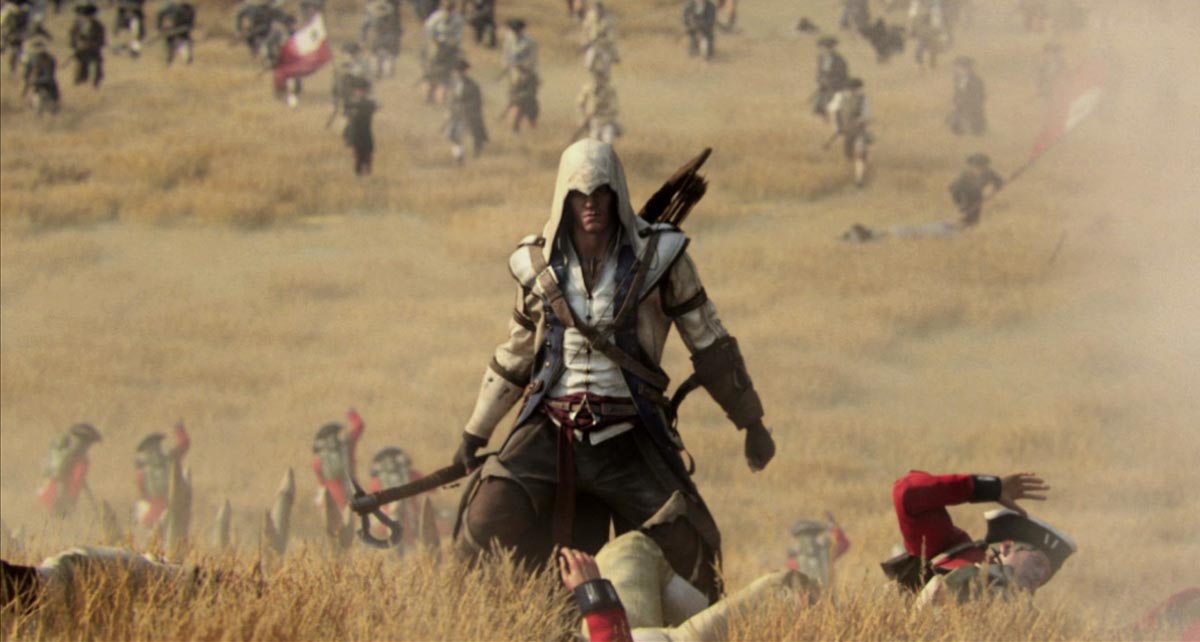What in the world has happened to today’s gaming industry? We have millions of dollars focused on the same yearly rehashes, be they of assassins of memory or futuristic marines who can take several body shots but fall with a knife slash. We have studios closing, one after the another, when a title doesn’t ship millions of copies, even if they’re simply A or AA titles rather than the coveted AAA category. We have veterans moving from one studio who’s gone bankrupt to another that’s now facing layoffs.
We have indie titles competing, fighting tooth and nail, to get to renowned digital distribution platforms, when they could be developing for the PC at lesser price and seeing more returns; big companies banking on mobile devices and social platforms in hopes of garnering returns from the main stream crowd.

With all the millions of dollars going into AAA blockbusters it was a given that they would slip up sooner or later. But what is the problem exactly? The lack of innovation or failing at new risks?
On the surface, the problem appears straight forward: Dumbing down the title for the masses. Look at Resident Evil 6. Capcom proclaimed that it wanted the title to be more like Call of Duty, and effectively shaped the game to be like that. Turret sequences, driving sequences, piloting a harrier jet, slow mo shooting sequences, squad-based sequences, cover mechanics, and so on and so forth – you name it. Heck, it emphasized it’s tenacity for quick time events more than ever, and split up the campaign to allow for multiple characters, just for that extra dose of replayability. This isn’t including the Horde Mode-like Mercenaries mode, or Beast Mode-like Agent Hunt. Let’s not even get into why the game is broken and distraught, and a perfect example of how to systematically ruin a franchise.
When big-name blockbuster titles first started gaining ground, it was games like Max Payne that were leading the charge. They were known for emulating Hollywood movies, channeling the spirit of several key moments into real, tangible gameplay. Even a game like Fahrenheit fits into that mold, fitting a simple control scheme against key moments of tension, mystery and action (despite being an adventure game at heart).

Now, “blockbuster” titles refer to games that have loads of set-pieces, bombastic visuals, heavy budgets, decreased emphasis on single-player quality or length (and sometimes both), but for the most part, little innovation. Medal of Honor: Warfighter is a perfect example of this: A game initially hoped to push the franchise into more nuanced territory gameplay-wise but somehow further dumbed down the original’s formula. It became the bane of the military shooter industry; a game that didn’t even present the illusion of trying.
It’s a given that most developers have abandoned the classic definition of a video game “blockbuster”, with the exception of titles like Beyond: Two Souls, and so a lot of innovation has been abandoned with it. But despite much financial success, there’s no denying that the current status of dumbing down video games is having a damaging effect on overall video game quality (the Final Fantasy series, for example, which may as well be called the Final Fantasy XIII series now). Some exceptions remain to the new rule though.

Take Assassin’s Creed 3. New naval battle scenes, unlike anything we’ve seen in video games (or action adventure titles) to date, a revamped control scheme, new story and characters, new mulitplayer mechanics, new visuals and areas, and new additions to the familiar formula of navigation and fighting. Despite featuring, say, similar types of missions as previous titles, it’s a brand new experience. It may have it’s fair share of glitches and complaints but Ubisoft set out to create a quality experience above all else – where all the new elements don’t feel awkward, tacked on or excessive.
How soon will it be before all top-notch franchises just throw all pretense out the window and simply “cash in” on their properties, year in and year out? That will depend on how eager consumers will continue to be as they plunk money down for them, and given the current state of the gaming industry, it won’t be very long.













